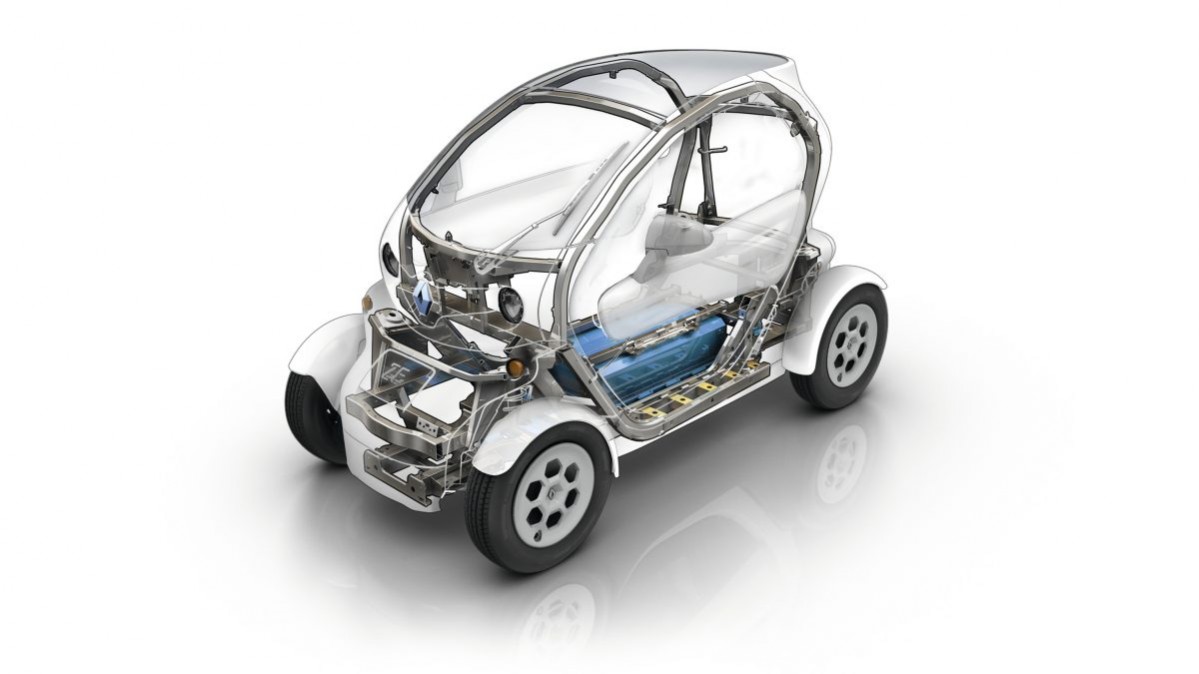Una delle maggiori novità del Ces di Las Vegas, il maggior evento tecnologico dell’inverno, è Pom, un veicolo elettrico presentato da Renault basato su Twizy compatto e leggero dotato di una piattaforma automobilistica open source. Pom nasce dalla collaborazione fra Renault, Arm, leader mondiale nei micropocessori e OsVehicle startup nata nel torinese dai fratelli Tin Hang Liu e Yuki Liu.
I due geniali fratelli Tin e Yuki hanno vissuto quasi tutta la loro vita a Torino, diventando dei guru della Rete e dei social network. Poi insieme al loro padre Francisco Liu e Ampelio Macchi, hanno concepito e realizzato l’idea di OSVehicle che li ha portati in Silicon Valley a scalare il mercato dell’automobile del futuro.
OSVehicle sta al futuro dell’automobile come Arduino al futuro dell’elettronica delle cose: si tratta di una piattaforma open source industrializzabile per realizzare hardware pensato per la mobilità. Osvehicle è una piattaforma universale che consente di assemblare facilmente auto a due, tre o quattro ruote che possono essere dalla city car al fuoristrada, una piattaforma che si posa perfettamente con in futuro dell’auto elettrica iper tecnologica a basso impatto ambientale.
La storia aziendale di OsVehicle è un mix di genio, capacità imprenditoriale, visione sul futuro:
Tired of an aging industry, not sustainable, slow, with little innovation, too complicated and closed, we decided to bring a new vision to the transportation industry.
Francisco Liu and his company Italchina worked for over 30 years in this sector: from cars and motorcycles to trains, with brands such as Giugiaro and the Cagiva Group. Tin Hang Liu, Francisco’s son, was new to the industry and worked with his father for 8 years on an electric vehicle project in collaboration with Giugiaro Design. The first milestone was set back in 2008 when, in Silicon Valley, Tin met some pioneers of OSHW (Open Source Hardware) and thought about a way to merge the two worlds. He saw the fast growth of startups as an opportunity and came up with a question: “how can we enable serial entrepreneurs in the field of electric vehicles?”
An internal evangelization began. The idea was to provide an open framework as a chassis to build vehicles. It was tough to introduce this concept in a strictly traditional industry, but as the first designs were developed and prototypes created, the vision became clear also to the most conservative engineers.
In 2012 Tin thought about the name “OS Car” but believed it was going to pose too many limits. The concept should be extended to different categories of vehicles, like two and three-wheelers, creating a true open ecosystem. This led to “OSVehicle” and the domain name was registered.
Yuki Liu, Francisco’s daughter, since the beginning had an active role in the internationalization and in the exposure to global audience of OSVehicle’s identity and values, engaging key opinion leaders and managing strategy initiatives for the media and public events. Yuki is now giving her personal contribution to the media and marketing team and ensuring the strategy execution.
Soon Ampelio Macchi, one of the most famous engineers in enduro and motocross engine development with over 51 world championship titles, joined OSVehicle with his Italian based “Motor Company” as supplier for Italchina.
The name TABBY for the first platform came from Tin’s idea of a versatility and agility comparable to that of the “tabby” breed of cats.
In summer 2013 Carlo De Micheli joined the digital and media team, he was in charge of innovation and the connected car aspects.
In October 2013 the Hong Kong based company was founded and OSVehicle launched publicly for the first time during Maker Faire Europe, an event organized by Riccardo Luna, director of Wired Italy in 2008, and Massimo Banzi, founder of Arduino.
The team continued to grow with the involvement of Simone Cicero, influencer in Open Source Hardware and core connector of OuiShare, and Francesco Nepi, previously marketing director and worldwide sales manager for brands such as Aprilia and Piaggio as well as CEO of Oxygen.
Today OSVehicle has requests from over 80 countries, with hundreds of projects being started based on the open platform, which is freely downloadable from the website.
La partnership con Renault è un successo importante, raccontano Tin e Yuki:
“Siamo lieti di accogliere un costruttore automobilistico del valore di Renault nel nostro ecosistema aperto. Siamo certi che la nostra community offrirà un valore aggiunto all’industria automobilistica, proponendo nuove soluzioni di mobilità e fornendo una risposta ad esigenze specifiche, grazie ad una gamma più ampia di tecnologie per i veicoli connessi e la guida autonoma. La condivisione universale di piattaforme hardware rappresenta un nuovo approccio di creazione collaborativa ed orizzontale, in grado di indurre modifiche durature in questo settore industriale, riducendo nettamente i costi e il time-to-market”.
